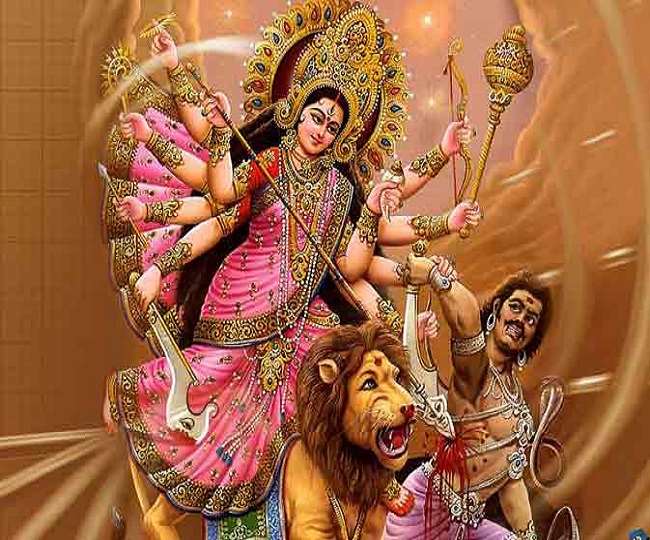- By Aalok Sensharma
- Mon, 23 Mar 2020 07:15 PM (IST)
- Source:JND
New Delhi | Jagran Lifestyle Desk: Navratri is a nine-day long festival that is celebrated across the country with a lot of gusto and fervor. People worship the different avatars of Goddess Durga during the nine days of Navratri. Navratri is celebrated four in a year -- Chaitra Navratri, Magha Gupt Navratri, Sharad Navratri and Asadha Gupt Navratri. However, only Chaitra Navrati and Sharad Navratri are important. Chaitra Navratri falls in the month of March and April, according to the Gregorian calendar.
Chaitra Navratri, which also symbolises the beginning of the new year of the Hindu calendar, is celebrated with a lot of delight especially in the northern part of the country and people observe fast, perform puja and worship the different avatars of Goddess Durga. As part of their worshipping, people offer fruits, milk, flowers and different kinds of Prasad to the Goddess to seek the blessing of Maa Durga.
Also Read | Chaitra Navratri 2020: Date, time, kalash sthapana and puja vidhi of the nine-night festival
This year, Chaitra Navratri will be celebrated from March 25 to April 2. The nine avatras of Goddess Durga who are worshipped during the nine days of Chaitra Navrati are Goddess Shailaputri, Goddess Brahmacharini, Goddess Chandraghanta, Goddess Kushmanda, Goddess Skandamata, Goddess Kaalratri, Goddess Katyayani, Goddess Mahagauri and Goddess Siddhidhatri.
Why Chaitra Navratri is important?
Navratri is a nine-day festival that signifies the victory of good over evil. According to legends, worshipping Goddess Durga can help get salvation (Moksha) and seek her blessings for the future. Goddess Durga, who is worshipped during the Navratri, is a symbol of Shakti which means ‘ultimate strength’ and she gives strength to her devotees.
During the nine days of Navratri, people wake up early and take bath and wear new cloths. After this, they worship the Goddess and a special puja is organised to seek her blessings. People also chant different mantras and offer delicacies to the Goddess which is later shared as Prasad.
